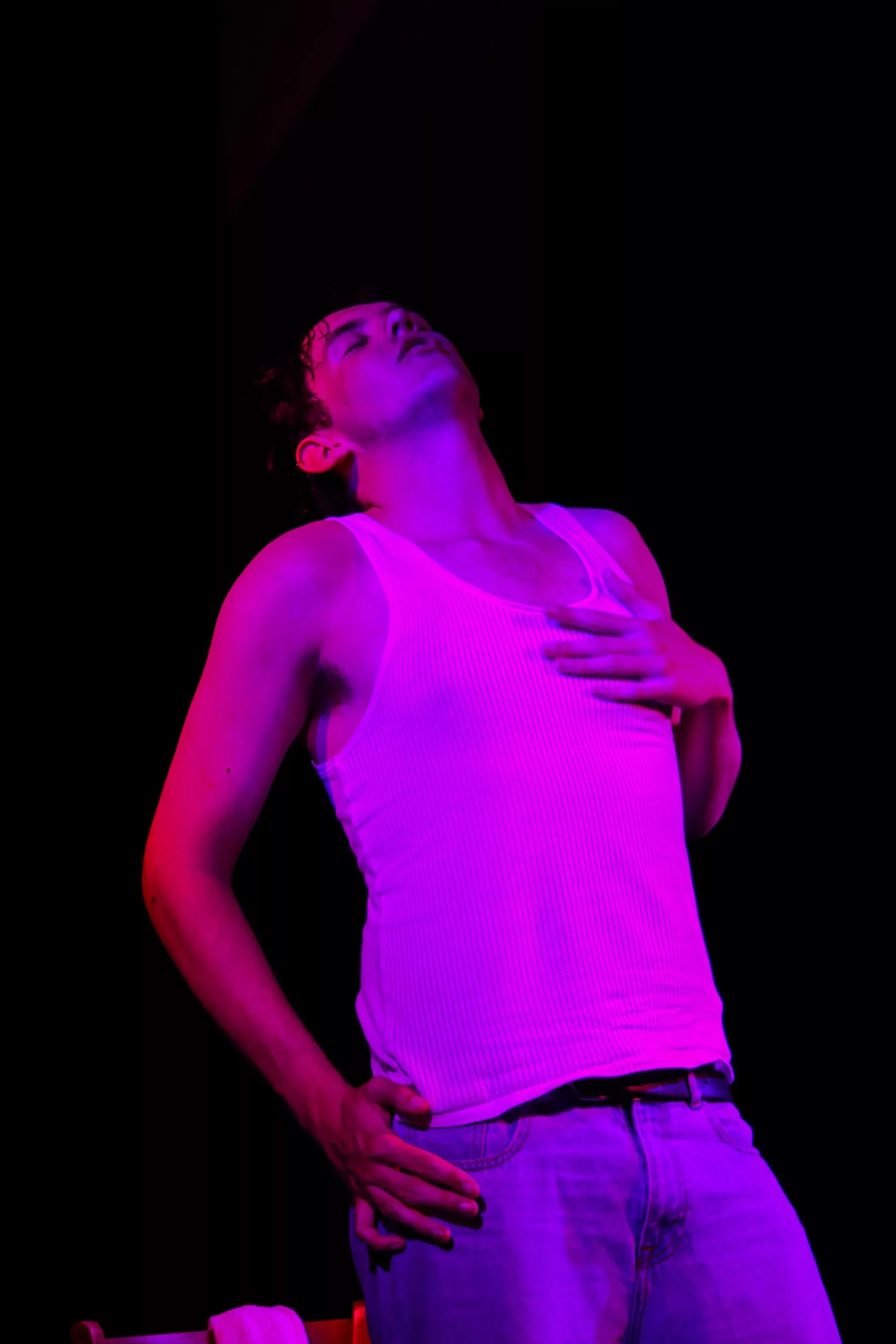“Imagine. You’re a character. You’re in a club.”
This may be Oli’s (Luke Nixon) first line to the audience but it does not feel necessary. Even before the play has begun, the work of Sound Director (Julia Males) and Lighting Designer (Alva Orr) means I already feel like this is the case. The combination of pop music played throughout the play (such as Lizzo’s ‘Tempo’) and bright iconic lighting choices make Oli’s dancing in a nightclub both convincing and successful from the get-go. Seeing lots of Oxford University Students in one space and the slightly sweltering Bread and Rose Theatre also helped make the stage feel like a bad nightclub. Where else, apart from ATIK, Bridge or Plush, do you get to see so many Oxford students in one building (including those who you did not expect to see) in an uncomfortably hot environment?
Oli, the protagonist, is ostensibly introduced as just a ‘nice and chill’ guy who seems to enjoy clubbing (not because he is a “hardcore rat” but instead because he just likes to dance). While Cruelty may be a one-man play, the plot is driven by Oli’s interactions with other characters (disembodied voices that the audience can only hear but never see).
However, it is never in doubt who this play is centred around: it’s Oli’s world and all the audience can do is watch him react to others. And Luke Nixon’s performance is captivating enough that this does not pose a problem for the play. The audience never seems to lose focus on Oli, and in fact, I found myself continually engrossed by Nixon’s stellar performance.
By easily switching from the intensely serious to light comedic relief, he left the audience mesmerised and brought all aspects of the play to life. Funny throughout, Gabriel Blackwell’s Cruelty moves towards the increasingly macabre as Oli goes from the club to a disturbing hookup, all while the audience is learning about Oli’s Father with the eventual revelation of his suicide.
Blackwell’s writing continuously shocks. The abrupt descriptions of a gun, an abandoned baby, a homeless man and rotten food in an orgy prevents the audience from ever feeling relaxed and caused me to feel a continual sense of unease throughout.
However, Cruelty definitely had many comedic moments which the hysterical audience (and even Julia Males in the back) absolutely loved. These jokes landed largely because of Luke’s delivery – my personal favourite being a self-aware joke about a one-man play in Clapham.
Though the disconcerting nature of the script prevented the jokes from being as funny as lines on a page, I don’t know if this is a positive or negative. Was the audience meant to sit shell-shocked, or laugh along guiltily? Blackwell’s writing was discomforting largely because he made a point of ‘breaking the fourth wall’ and making the audience feel as if they were unwelcome voyeurs. Repeatedly, Oli acts as if we should not be looking, shaming the audience, while recognising and stating that we are compelled to look anyway.
Cruelty does slightly disappoint in one political way – something that as a PPE student I just can’t help but mention, even if others may disagree. Cruelty‘s cursory mention of US police violence, enough to evoke feelings of pity from the audience (but not much else), seems to me symptomatic of a wider problem. Political activism that is viewed as an ‘aesthetic’ designed to solely attract attention for the activist rather than help the marginalised communities they claim to represent. Cruelty fell into this trap. It mentions police brutality but it functions just as another way to shock the audience and as a tool to develop the character of a white man. It would have better served to either centre the play about police violence or otherwise completely ignore it.
On a final note, Cruelty has succeeded in demonstrating Blackwell’s talent as a first-time writer. By intentionally blurring the line between the audience and the actors, Cruelty set a higher bar than most other student productions. I believe they were able to follow through.



